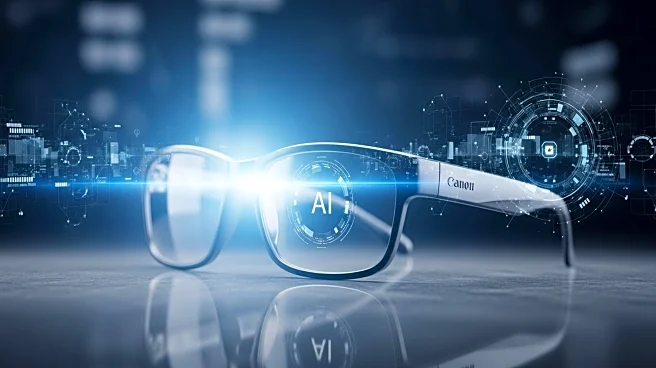What's Happening?
Meta is developing smart glasses equipped with always-on 'contextual AI', as revealed by Michael Abrash, Chief Scientist at Meta's Reality Labs, during Meta Connect 2025. This technology aims to provide users with a proactive AI assistant that continuously maps their environment and tracks interactions, offering real-time assistance without prior logging. Mark Zuckerberg, CEO of Meta, anticipates this innovation will be available in less than five years. The AI will enhance user experience by answering queries like calorie intake or locating misplaced items, provided the glasses were worn during the relevant activities. This advancement requires improvements in power efficiency, real-time 3D environment mapping, and semantic object recognition, alongside potential custom sensors and chips.
Why It's Important?
The introduction of always-on contextual AI in smart glasses represents a significant leap in wearable technology, potentially transforming how users interact with their environment. This development could enhance productivity and convenience, offering a high-IQ personal assistant with comprehensive life context. However, it raises privacy concerns due to the extensive data collection required, impacting both users and those nearby. Meta's ability to address these concerns will be crucial in gaining user trust and acceptance. The technology also aligns with Meta's business model, potentially enhancing targeted advertising capabilities through detailed user interaction logs.
What's Next?
Meta will need to focus on building trust with users regarding data privacy and security to ensure widespread adoption of this technology. The company may also explore partnerships or develop proprietary solutions to enhance the power efficiency and connectivity of the smart glasses. As the technology progresses, Meta could face regulatory scrutiny over privacy implications, necessitating transparent policies and user controls. The success of this initiative could influence the broader wearable tech industry, prompting competitors to develop similar AI-driven solutions.
Beyond the Headlines
The deployment of always-on contextual AI in smart glasses could lead to ethical debates about surveillance and data ownership. It may also drive cultural shifts in how individuals perceive privacy and personal data usage. Long-term, this technology could redefine human-computer interaction, fostering a more integrated digital lifestyle. The potential for AI to anticipate user needs and actions could lead to new applications in various sectors, including healthcare, education, and entertainment.









